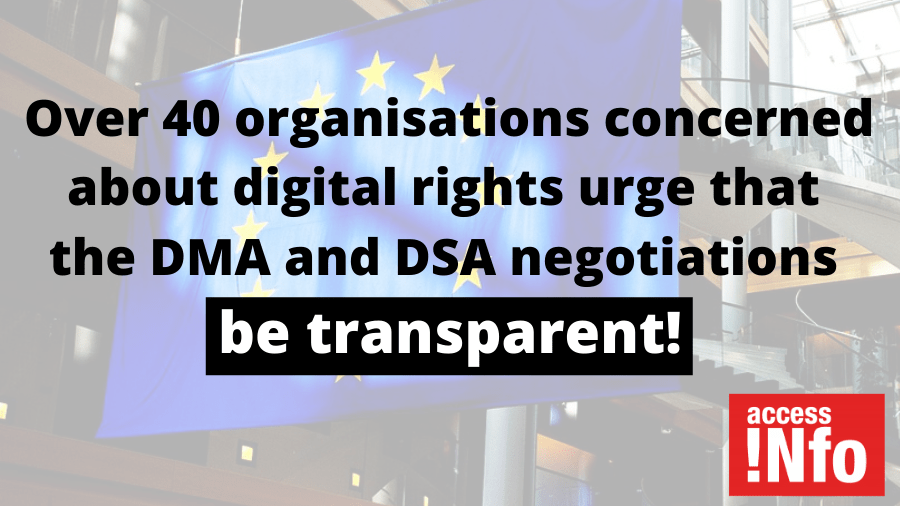Madrid, 1 March 2022 – Access Info is one of 43 organisations which today called on EU leaders to ensure full transparency of debates over the future regulation of our digital environment, including services and marketplaces online.
As three-way negotiations are proceeding between the European Commission, European Parliament and the Member States in the Council of the EU, the organisations expressed concern at the lack of transparency of the texts being discussed.
Rather unusually, there has been little transparency of the so-called “trilogue” negotiations on the Digital Markets and the Digital Services Acts, in spite of this being required by the jurisprudence of the Court of Justice of the European Union, following a landmark ruling in 2018 in a case taken by Emilio De Capitani.
Civil society activists trying to follow the negotiations have submitted requests across Access Info’s AskTheEU.org platform, asking specifically for copies of the proposed texts under discussion (known as the “four-column documents”) and agendas for the negotiations; the Council of the European Union has until 7 March 2022 to reply to the request.
“Given concerns about the intense lobbying around these rules, it is absolutely essential that civil society is able to obtain the information that it needs to participate in the discussions,” said Helen Darbishire, Executive Director of Access Info.
In the letters sent to MEPs Andreas Schwab and Christel Schaldemose, European Commissioners Margrethe Vestager and Thierry Breton, and Minister Cédric O of France, which currently holds the presidency of the EU, the organisations ask for publication of:
» Updated lists of documents tabled during the negotiations;
» An up-to-date calendar of trilogue meetings including summary agendas;
» The texts being discussed, in the format of the four-column documents created and amended during the discussions.
In its 2018 ruling, the Court emphasised that “openness strengthens democracy by allowing scrutiny of the legislative process” and that “the possibility for citizens to find out the considerations underpinning legislative action is a precondition for the effective exercise of their democratic rights.”
The same ruling contains multiple references to the principles of transparency and participation by the Court in the case of Access Info Europe v Council, a case won by Access Info in October 2013 which resulted in greater transparency of legislative negotiations inside the Council.
Read the full letter here.

